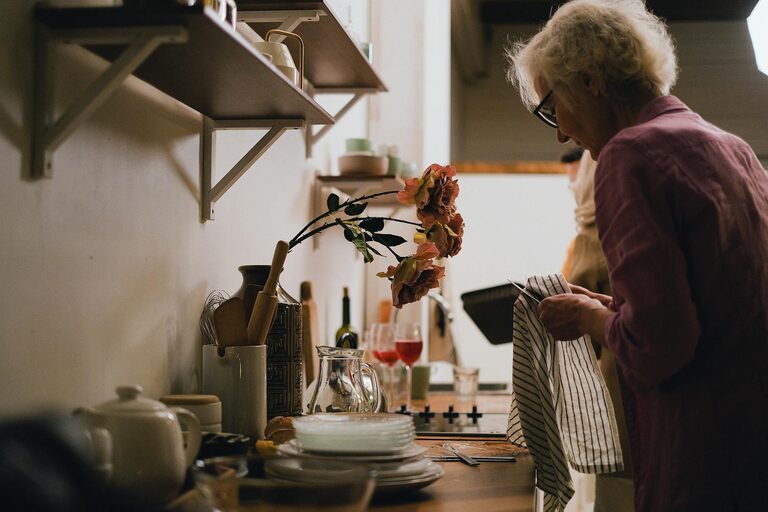After enjoying a delicious dinner, the last thing anyone wants is to spend a lot of time and energy cleaning up. However, cleanup is an essential part of the cooking process. With a few practical strategies and smart habits, you can significantly ease the burden of dinner cleanup and reclaim your evening. This post shares a variety of ideas to make cleaning up after dinner faster, simpler, and even a little less tedious.
1. Plan and Prep for Easy Cleanup
Keep It Simple with Minimal Ingredients and Tools
When planning meals, consider recipes that use fewer pots, pans, and utensils. One-pot or one-pan meals cut down on the number of dishes, making cleanup a much quicker task.
Use Prep Bowls or Containers
Using prep bowls while chopping and preparing ingredients can reduce mess on your main workspace. You can rinse or wipe these bowls as you go, which keeps things cleaner overall.
Soak as You Cook
If you use pots and pans that tend to get stuck with food, fill them with hot water and a little soap right after cooking. Letting them soak while you eat prevents tough scrubbing later on.
2. Organize Your Workspace for Efficiency
Clean as You Go
Try to wash cutting boards, knives, and prepping tools while other food is cooking. Wiping down surfaces and putting ingredients away as you finish using them keeps the kitchen tidy and reduces overall mess.
Keep a Trash Bowl or Bag Nearby
Having a designated container for vegetable peelings, food scraps, and wrappers within arm’s reach makes waste disposal faster and helps prevent clutter from piling up.
Use Stackable or Nesting Cookware
Cookware designed for easy stacking can save counter and sink space during cleanup and storage.
3. Optimize Your Dishwashing Routine
Load the Dishwasher Efficiently
If you use a dishwasher, load it strategically by grouping similar types of dishes and arranging utensils properly. This improves cleaning performance and allows you to fit more items per cycle.
Handwashing Tips
For handwashing, use warm soapy water and rinse with hot water. Washing greasy items last can help keep your water cleaner for longer. A good quality scrubber or sponge will also make the job quicker.
Dry While You Wash
Using a drying rack near your sink helps dishes drain as soon as they are washed. If you have the time, drying dishes immediately also prevents spots and helps you put items away faster.
4. Use Time-Saving Tools and Products
Silicone Bakeware and Mats
Silicone baking mats and liners reduce the need for greasing pans or scrubbing baked-on food. They are easy to clean and reusable, which is environmentally friendly too.
Nonstick Cookware
Nonstick pots and pans prevent food from sticking to surfaces, decreasing the amount of scrubbing needed afterwards.
Multi-Purpose Cleaners
Keep a gentle, multi-purpose cleaner handy for wiping counters, stovetops, and tables quickly after meals. This helps maintain cleanliness with minimal effort.
5. Involve Everyone in Cleanup
Make It a Family Activity
If you live with family or roommates, divide up cleanup tasks. Washing, drying, putting dishes away, or wiping down surfaces can all be shared responsibilities.
Assign Simple Tasks to Kids
Kids can help with age-appropriate chores like clearing the table, sorting silverware, or wiping counters. This not only teaches responsibility but reduces the workload.
Set a Timer for Cleanup
Turning cleanup into a quick, timed challenge can motivate everyone to work efficiently and make the process more enjoyable.
6. Develop Habits to Maintain a Clean Kitchen
Wipe Surfaces Immediately After Use
Cleaning spills and crumbs right away prevents build-up and makes surfaces easier to maintain.
Empty the Trash Frequently
Full trash bins can slow down cleanup and cause unpleasant odors. Emptying as needed keeps the kitchen feeling fresh.
Keep Cleaning Supplies Accessible
Store cleaning cloths, sprays, and brushes where you can easily find them. This encourages quick touch-ups throughout the cooking and dining process.
7. Use Smart Storage Solutions
Store Leftovers Promptly and Neatly
Use airtight containers with clear labels to store leftovers right after dinner. This keeps the kitchen organized and prevents food waste.
Optimize Cabinet and Drawer Space
Organizing utensils and cookware strategically can make it easier to find what you need and put it away efficiently after use.
Conclusion
Dinner cleanup doesn’t have to be a dreaded chore. By planning meals thoughtfully, maintaining an organized workspace, using the right tools, and sharing tasks, you can finish cleaning faster and enjoy more quality time after dinner. Small changes in your routine add up to significant improvements in kitchen cleanliness and ease. The next time you prepare dinner, try a few of these ideas and see how much simpler cleanup can be!
Happy cooking and cleaning!

